1. Water Treatment and Waste Management
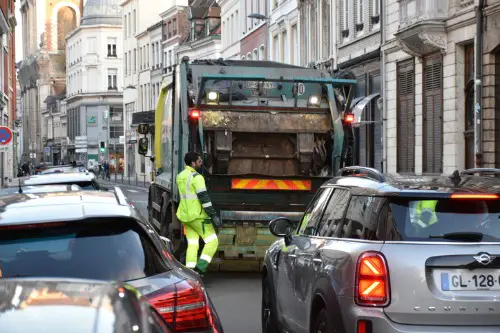
Most of us take clean water for granted, but there’s a massive industry working behind the scenes to make sure our taps run clear. Water treatment plants remove contaminants, bacteria, and even chemical residues that could be harmful to humans. Without them, the risk of waterborne illnesses would skyrocket. Yet, hardly anyone talks about the engineers, chemists, and technicians who keep this system running smoothly.
Waste management goes hand in hand with water treatment. Garbage pickup, recycling, and sewage processing all prevent disease outbreaks and environmental disasters. It’s not glamorous, but it’s essential to everyday life. Every time you flush a toilet or recycle a bottle, you’re relying on this silent army of workers.
2. Logistics and Freight Shipping
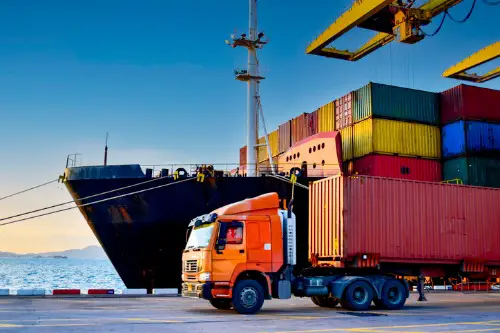
Think about how your online orders or grocery store deliveries arrive on time—thank the logistics industry. Trucks, rail, ships, and planes all coordinate to move goods across the country efficiently. There’s a complex web of scheduling, tracking, and storage that most of us never notice. Without this system, shelves would empty fast, and prices would soar.
Freight shipping isn’t just about convenience; it keeps industries alive. Manufacturers rely on parts arriving precisely when needed, and farmers depend on refrigerated trucks to prevent spoilage. Every product you touch has been moved by this invisible network. It’s a system so reliable that we rarely stop to think about it, until something goes wrong.
3. Power Grid Operations

Electricity is probably the most taken-for-granted utility in our lives. Behind the walls, operators are balancing supply and demand every second to prevent blackouts. They maintain transmission lines, monitor power plants, and respond to emergencies. A single misstep can leave millions without lights, heat, or access to essential services.
It’s not just about keeping the lights on, either. Hospitals, data centers, and transportation systems all depend on a stable grid. Even something as simple as charging your phone relies on this unseen infrastructure. Yet, few of us stop to thank the people who literally keep the nation running.
4. Soil and Agricultural Testing
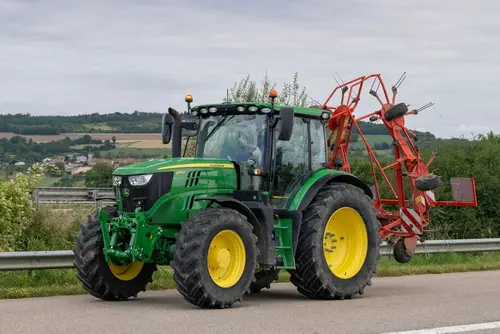
When you bite into a fresh apple or sip milk, you’re benefiting from industries few ever think about. Soil scientists and agricultural labs analyze crops for nutrients, toxins, and disease risks. Their work ensures farmers grow healthy, productive food safely. Without these tests, our food supply could be far less reliable.
This industry also helps fight environmental degradation. By monitoring soil health, experts guide sustainable farming practices. They prevent over-fertilization, protect water sources, and maintain biodiversity. It’s a quiet, critical force supporting both our dinner plates and the planet.
5. Pest Control Services
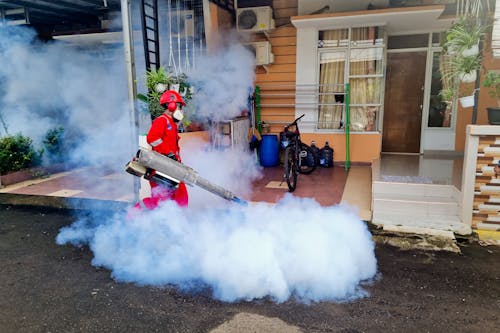
Pests might seem minor, but they can wreak havoc on homes, crops, and public health. Pest control professionals prevent infestations that could spread disease or destroy food supplies. From rodents to insects, their interventions are often invisible but incredibly impactful. You might not notice them until they’re gone—or until a problem erupts without them.
This industry also protects major infrastructure. Termites can weaken buildings, mosquitoes can carry deadly viruses, and invasive species can disrupt ecosystems. Pest control keeps both urban and rural environments safe and livable. It’s one of those industries you rely on without ever thinking about it.
6. Semiconductor Manufacturing
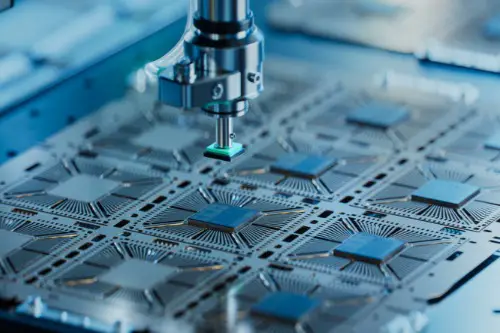
Every smartphone, laptop, and modern car relies on semiconductors, yet the industry itself rarely gets the spotlight. Chips are crafted in highly specialized factories with extreme precision, often under cleanroom conditions. Even small disruptions in production can ripple across global markets. Without them, technology as we know it would stall.
Semiconductors also drive innovations in healthcare, transportation, and energy. Pacemakers, electric vehicles, and renewable energy systems all depend on these tiny components. It’s an industry whose impact is massive but almost entirely hidden from everyday life.
7. Funeral Services and Cremation

It’s a topic most of us avoid, but funeral services are quietly indispensable. Beyond helping families navigate grief, they handle legal documentation, public health concerns, and body preservation. Morticians and crematorium staff perform delicate, emotional work every day. Without them, communities would struggle to honor their dead safely and respectfully.
This industry also maintains cultural traditions. Funeral practices vary widely, but professionals ensure they happen smoothly and legally. They manage logistics that most people never consider, from transportation to regulatory compliance. Their work is a hidden backbone of societal rituals.
8. Industrial Cleaning and Sterilization
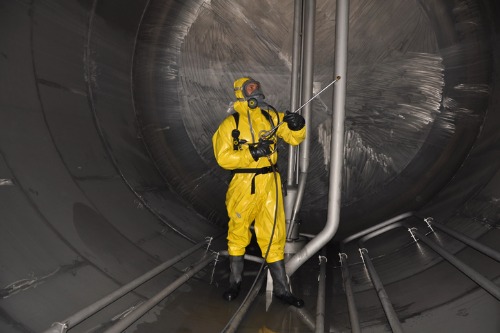
Hospitals, labs, and factories all depend on industrial cleaning specialists to prevent contamination. These professionals handle everything from disinfecting surgical equipment to deep-cleaning manufacturing floors. Their work prevents infections, protects workers, and ensures product safety. It’s a job that requires precision, vigilance, and often dangerous chemicals.
Beyond health, industrial cleaning keeps businesses compliant with regulations. Food processing plants, for example, must meet strict sanitation standards. Without these services, recalls, disease outbreaks, and production halts would be common. It’s an industry that protects both people and profits, largely unnoticed.
9. Air Traffic Control
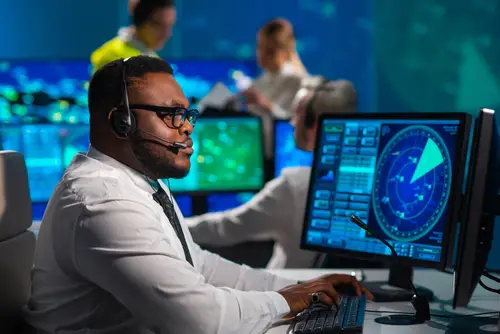
Air traffic controllers are the invisible guardians of our skies. They coordinate thousands of flights daily, preventing collisions and managing delays. Their decisions require split-second timing, deep focus, and constant communication. Most travelers only notice them when there’s a delay or cancellation.
The safety and efficiency of air travel rely on this high-stakes work. Airlines, cargo shipping, and even emergency medical flights depend on controllers’ expertise. The complexity of coordinating the airspace is staggering. Without them, flying as we know it would be chaotic, if not impossible.
10. Industrial Lubricants and Coolants

Ever wonder what keeps a factory’s machines from seizing up? Industrial lubricants and coolants do the heavy lifting. They reduce friction, prevent overheating, and extend the lifespan of expensive machinery. Without them, production lines would grind to a halt regularly.
This industry is critical to transportation too. Car engines, aircraft turbines, and even wind turbines rely on specialized oils and coolants. It’s a technical, behind-the-scenes sector that touches almost every product in circulation. Yet, few of us ever give it a second thought.
11. Packaging and Labeling
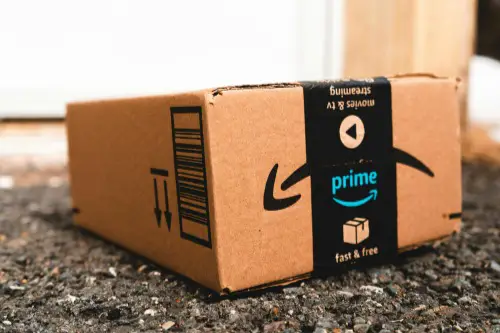
Packaging seems mundane, but it’s essential for safety, logistics, and marketing. Labels inform consumers about ingredients, expiration dates, and legal requirements. Packaging also protects products during transit, ensuring they arrive intact. Without it, grocery stores and e-commerce deliveries would be chaotic and unsafe.
This industry also impacts sustainability and waste reduction. Innovative packaging can reduce plastic use, improve recyclability, and preserve food longer. Its role extends far beyond aesthetics. Every day, we interact with packaging without realizing how much planning and engineering it took to get there.
12. Public Infrastructure Maintenance
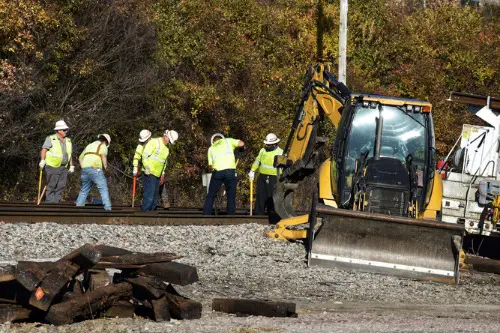
Bridges, roads, tunnels, and dams are part of the backbone of daily life, yet we rarely notice them until they fail. Maintenance crews inspect, repair, and upgrade these structures to prevent accidents and keep traffic flowing. Their work is dangerous, highly technical, and absolutely essential. Without it, commerce, commuting, and emergency services would be disrupted.
Infrastructure maintenance also protects communities from natural disasters. Reinforced levees, cleared drainage systems, and retrofitted buildings reduce the impact of storms and earthquakes. It’s a quiet industry that touches nearly every aspect of modern life. Essentially, it keeps the country moving and safe.
This post 12 Industries Americans Depend On But Rarely Talk About was first published on American Charm.


